Black Mermaid: ‘I was always the only black person on the boat’
- Published
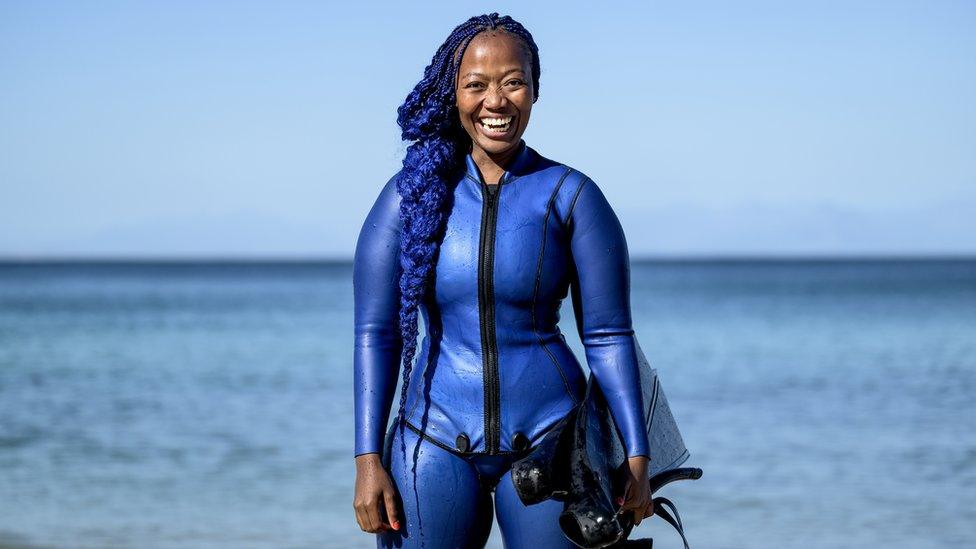
Zandile Ndhlovu became South Africa's first black female certified freediving instructor
Zandile Ndhlovu grew up in Soweto, a black township in South Africa on the edge of Johannesburg, where no-one ever dreamed of travelling hundreds of miles to swim in the ocean. There wasn't even a swimming pool.
"And there was this narrative of, 'Black people don't swim, we don't do that stuff,'" she says.
So she wasn't prepared for her first snorkelling trip, in Bali, at the age of 28.
"The captain told everybody to kit up," she recalls.
"I didn't even know what 'kit up' means. I didn't even know what a snorkel did. When I jumped into the water, I started freaking out. I thought I was drowning."
But Ndhlovu says that once she became settled, she felt at peace.
"I told myself to calm down. I looked beneath the surface of the water and couldn't believe the overwhelming blue, the yellow fish, and the sun rays on the coral reef. It was the most beautiful thing I had ever seen in my life."
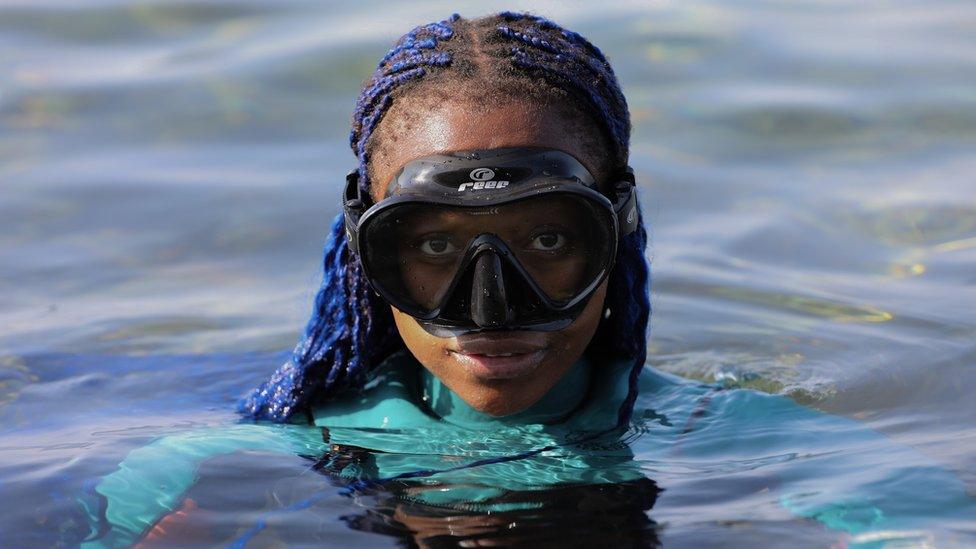
The experience prompted her to take a diving course, and three years ago she became South Africa's first black female freediving instructor.
It wasn't always an easy journey.
"I was always the only black person on the boat," she says.
"It was interesting because you go through various things, whether it's language, and everybody is speaking, Afrikaans… or whether it's your wetsuit not fitting, or someone asking: 'Are you gonna dive with all of that hair?'"
Black Mermaid: ‘I was always the only black person on the boat’
People in the black community also had questions, she says.
"My friends would say: 'Why do you do white-people things?'"
This increased her determination not to become another black person working in a dive shop once she had qualified, but to bring about change - to ensure that children of colour have access to the ocean.
And that is how the Black Mermaid Foundation was born, set up and part-funded by Ndhlovu from her base in Cape Town, on South Africa's south-west coast, where the Indian and Atlantic oceans meet.
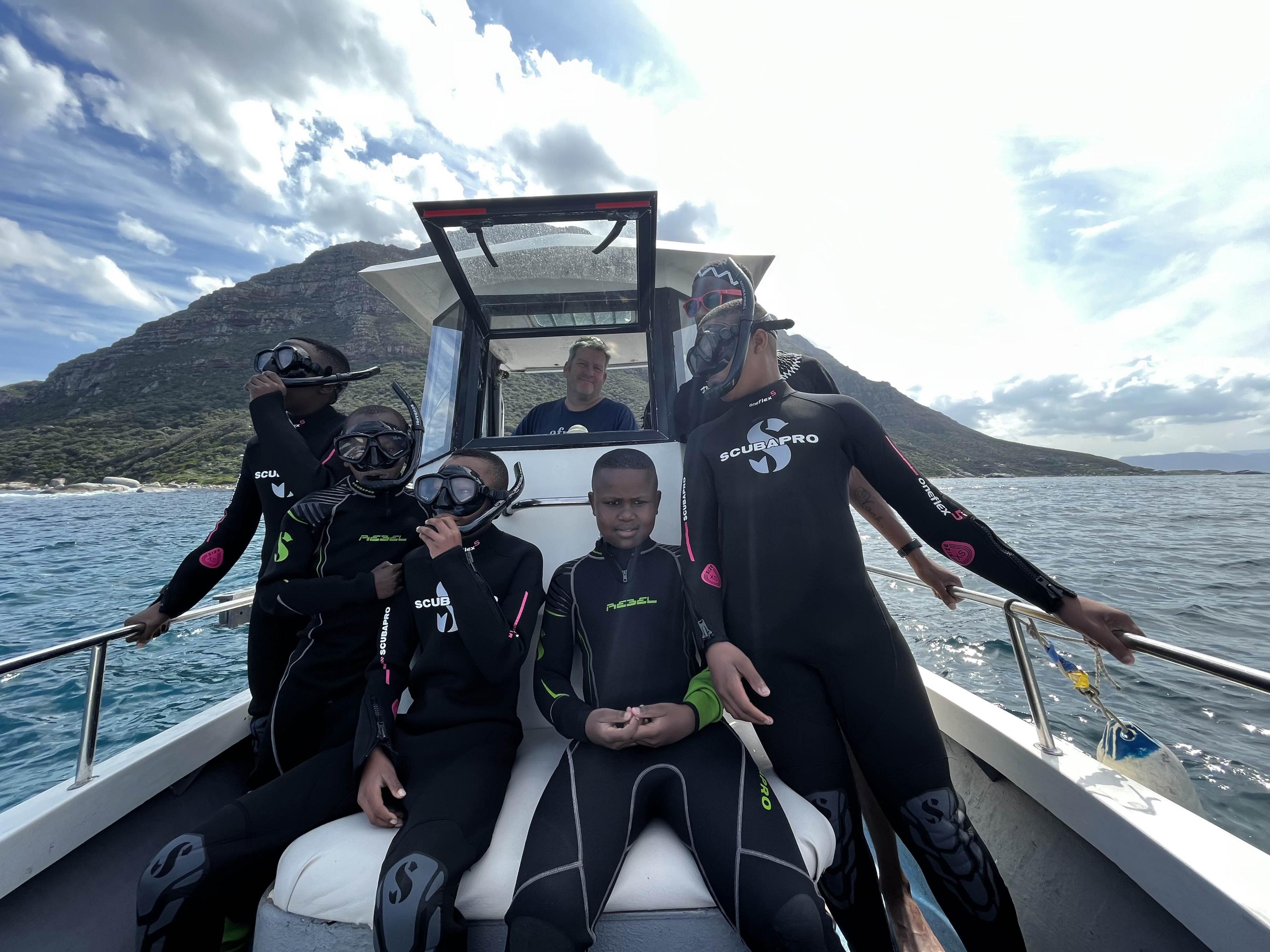
The Black Mermaid Foundation wants to improve access to the ocean for children from underprivileged backgrounds
The foundation organises ocean exploration programmes for children and young people across the country, where they learn to swim, watch penguins play, and discover the African Sea Forest, a vast underwater ecosystem.
Leah, aged 13, is one of those young people.
"I love the ocean, but I was scared to go deep," she says.
"Zandi was very patient with me. She made me relaxed because I was panicking that I was going to drown.
"It's very inspiring to see how brave she is and how in love she is with the ocean. It makes me feel that whatever I love can become a part of me in life, just like how the ocean is something to her."
Ndhlovu has been named as one of the BBC's 100 Women of 2023.
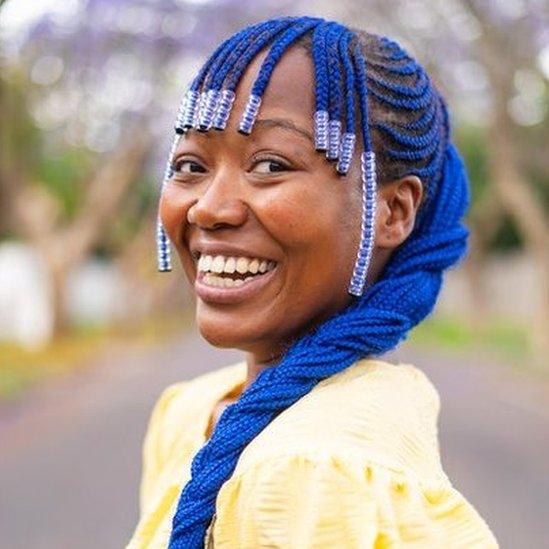
Zandile is one of the BBC's 100 Women for 2023

She is now broadening the foundation's work to include what she calls "ocean hubs" across the country, which she describes as "ocean-inspired spaces with books, and a place where kids can play and escape from the everyday".
The first is being set up in the township of Langa, just over 10km (six miles) from central Cape Town.
"Langa has many challenges, whether it is drugs, gender-based violence, wild poverty - there's so much that goes on. So, I thought what would happen if we had this hub where the kids could come to read and learn together?" Ndhlovu says.
She hopes this programme will create a diverse group of "ocean guardians" and will encourage black and brown African communities to be part of the climate change conversation.
"As Africans, we cannot take the Western ideal of conservation, and use it in Africa in the way it has always existed," Zandile Ndhlovu warns.
"The Western narrative always says, 'water and marine life before people'. But you cannot protect the waters, when you don't know what your family is going to eat tonight."
She says elders in the black community can make a key contribution.
"We need to use the indigenous knowledge with the Western knowledge, not one above the other, as both are important.
"Then we can begin to build something incredible."
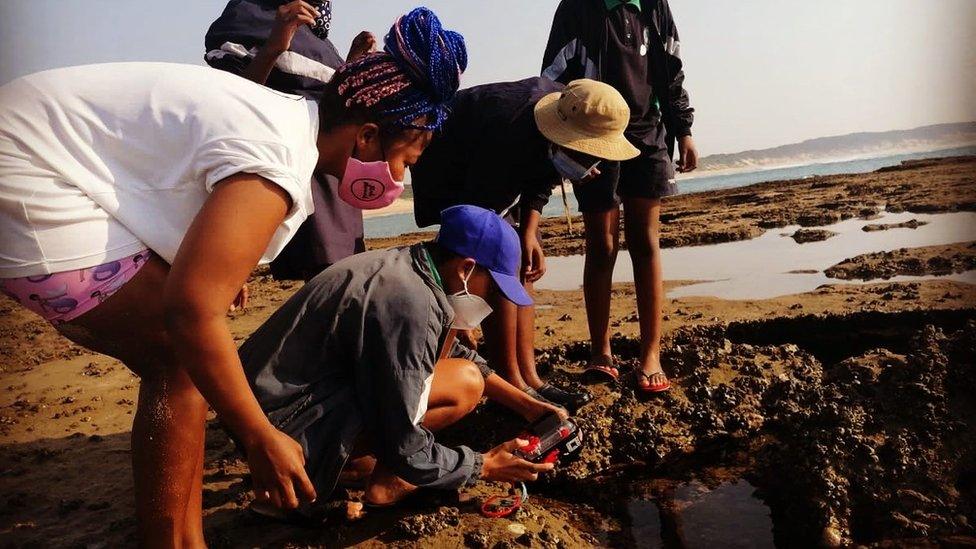
Teaching the next generations about the ocean is key for marine conservation, says the freediving instructor
Despite her busy life, Ndhlovu always swims or dives at least two to three times a week, even if it's "15 minutes in-between meetings".
"The sea is my sanctuary," she says.
"It's where I go to think, to release. I love the feeling of being held up by this large body of water.
"There is no expectation, it's just me in this space where I find my voice, my courage, my identity. From there, I'm able to show up in the world a little bit braver."


RISING TIDES, SHIFTING FUTURES, external
BBC 100 Women meets the women at the forefront of the climate battle, working against the odds to secure a future for themselves and their communities.


BBC 100 Women names 100 inspiring and influential women around the world every year. Follow BBC 100 Women on Instagram , externaland Facebook, external. Join the conversation using #BBC100Women.